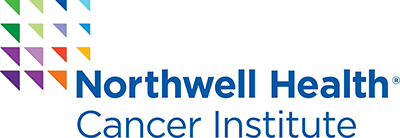


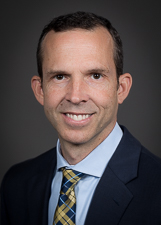
Joseph Herman, MD, is vice chair of clinical informatics for radiation oncology and director of clinical research at the Northwell Health Cancer Institute. He treats primarily gastrointestinal cancers, with a focus on liver, colorectal and pancreatic tumors. He specializes in using stereotactic body radiation therapy (SBRT), a highly precise form of treatment that is frequently combined with targeted drugs and immunotherapy.
“I aim to provide care that I would want for my own family members,” says Dr. Herman. Giving patients ready access to cutting-edge treatment through clinical trials is integral to this approach. His care plans are rooted in the latest evidence-based medicine and research. He is a principal investigator for several institutional gastrointestinal cancer studies and is a co-investigator and the radiation oncology lead for the Alliance in Clinical Trials in Oncology borderline resectable pancreatic cancer study.
Dr. Herman earned his medical degree and a master’s in epidemiology and preventive medicine from the University of Maryland at Baltimore and completed his residency in radiation oncology at the University of Michigan Health System. He also holds a master’s in healthcare management from the Johns Hopkins University Carey School of Business.
At Northwell, he enjoys fostering a collaborative approach to care. “I engage our entire multidisciplinary team to ensure we agree upon a clear, coordinated treatment plan for each patient through their entire trajectory of care,” says Dr. Herman. He regularly works with pathologists, radiologists, medical oncologists, and surgical oncologists.
Dr. Herman has published more than 250 articles in prestigious, peer-reviewed journals and is a frequent presenter at national cancer medical meetings. His professional memberships include the American Society of Radiation Oncology, the American Society of Clinical Oncology, the American Association of Cancer Research, the Radiation Therapy Oncology Group and the American College of Radiology. He also received award funding to establish the Canopy Cancer Collective, a non-profit learning health network of cancer centers devoted to the care of people with pancreatic cancer.
For Dr. Herman, striving for continued improvements in cancer care is one of the most rewarding parts of his job. “While we’ve made great progress, there is still so much more work to be done,” he says. “I’m committed to the pursuit of curing cancer and doing so in a way that maintains a person’s quality of life.”
Board certifications
Radiation Oncology – American Board of Radiology / Radiation Oncology
Academic titles
Professor, Donald and Barbara Zucker School of Medicine at Hofstra/Northwell
Education
University of Maryland – Baltimore
Residencies
University of Michigan Medical Center – Ann Arbor
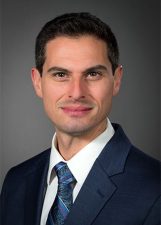
Daniel King, MD, PhD, is a former Howard Hughes research scholar at the National Institutes of Health and trained in genomics and bioinformatics at the Wellcome Trust Sanger Institute, where he developed software tools to perform mosaic copy number detection. During his time at the Wellcome Trust Sanger Institute, he spearheaded copy number analysis for 36,000 exome samples in the Deciphering Developmental Disorder Rare Disease project. The results from this work characterized unprecedented detail in the landscape and architecture of developmental disorders, was published in Nature and Lancet, and led to several first author publications.
Following medical and graduate school, Dr. King pursued a medical oncology fellowship under the ABIM Research Track pathway at Stanford University. A core focus of his fellowship research involved circulating tumor DNA (ctDNA), which included the computational design of a ctDNA detection panel for pancreas cancer and laboratory validation. This work extended to fragmentomics—a computational analysis of circulating DNA fragment ends as a biomarker of cancer for early detection. From here, Dr. King created a large biobank of pancreas cancer specimens consisting of nearly 500 clinical blood samples from approximately 250 patients. He went on to link this biobank with a large clinical research database built in pancreatic cancer to mine and associate clinical data with translational correlates.
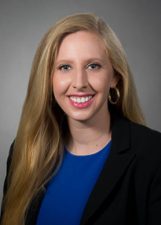
Attending Gastroenterologist Division of Gastroenterology Northwell Health
Assistant Professor of Medicine Zucker School of Medicine
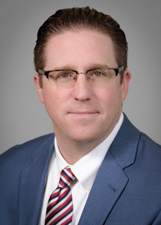
Matthew J. Weiss, MD, FACS, is deputy physician-in-chief and director of the surgical oncology program at Northwell Cancer Institute. He’s a board-certified surgeon specializing in pancreas and liver diseases.
With a relentless work ethic and strong desire to help people, Dr. Weiss always knew he wanted to be a doctor. “I picked a field that allows me to tackle difficult problems and truly make an impact,” he says.
Dr. Weiss completed his residency in general surgery at Johns Hopkins Hospital and was dual fellowship trained in surgical oncology and hepatobiliary surgery at Memorial Sloan-Kettering Cancer Center. He was previously chief of hepatobiliary surgery at Johns Hopkins, where he was also director of the Pancreas and Liver Multidisciplinary Clinics and the complex general surgical oncology fellowship.
Joining Northwell in 2019, Dr. Weiss created a multidisciplinary team of surgeons, medical and radiation oncologists, geneticists, and other specialists who collaborate to create unique treatment plans for patients across the health system. “Every cancer is different, and every patient is different,” he says. “Communication among multiple providers is the best way to ensure you’re treating the entire person, properly,” he says. Dr. Weiss’s team also works with scientists from Cold Spring Harbor Laboratory and Feinstein Institutes for Medical Research to develop and run groundbreaking clinical trials.
An international leader in both liver and pancreas surgery, Dr. Weiss has authored over 250 peer-reviewed publications in the field, and he’s currently a professor of surgery and oncology at the Donald and Barbara Zucker School of Medicine at Hofstra/Northwell. “Understanding both the science of the disease and the technological aspect of surgery is so important,” he says. Dr. Weiss focuses on using cancer genetics to help find the right surgical approach for patients. When possible, he operates robotically using small incisions for faster healing, so patients don’t have to wait as long to receive additional therapies that can improve outcomes. With recent advancements in the field, Dr. Weiss has been able to successfully perform high-risk surgeries that were turned down by other institutions.
“Being a surgeon is a tremendous responsibility, and I don’t take it lightly,” he says. “I truly and deeply care about my patients and their families-I get to know them as people and am there throughout their entire journey. That’s what I’m most proud of as a doctor.”
Board certifications
Surgery – American Board of Surgery
Administrative titles
Deputy Physician in Chief – Northwell Health Cancer Institute
Chief resident
Johns Hopkins University School of Medicine
Education
Thomas Jefferson Univ Medical School
Residencies
Johns Hopkins University School of Medicine
Fellowships
Memorial Sloan-Kettering Cancer Center
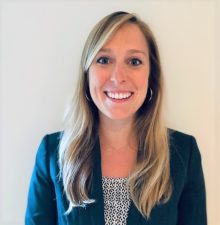
Clinical Research Project Manager Massachusetts General Hospital
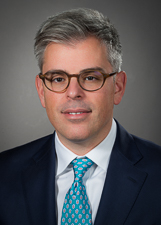
Board certifications
Gastroenterology – American Board of IM / Gastroenterology
Academic titles
Assistant Professor, Donald and Barbara Zucker School of Medicine at Hofstra/Northwell
Education
Albert Einstein College of Medicine
Residencies
Mount Sinai Beth Israel — Petrie Division
Fellowships
Mount Sinai Beth Israel — Petrie Division
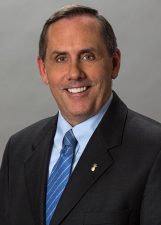
Jeff Boyd, PhD, is the director and professor of the Institute of Cancer Research within the Feinstein Institutes, and is a renowned expert in cancer genetics research and clinical molecular diagnostics. As the vice president, chief scientific officer and director of the Northwell Health Cancer Institute’s Center for Genomic Medicine, Dr. Boyd is focused on developing a Molecular Diagnostics Laboratory, designed to deliver point-of-care genomic testing for cancer patients. He fosters Northwell Health’s scientific collaborations with academic partners at Cold Spring Harbor Laboratory, where he is a professor, and at the Donald and Barbara Zucker School of Medicine at Hofstra/Northwell.
With 30 years of cancer research experience, Dr. Boyd most recently served on the executive leadership team of the Miami Cancer Institute at Baptist Health South Florida as associate deputy director for translational research and genomic medicine. He also served as a tenured professor and chair of the Department of Human and Molecular Genetics and associate dean for Research and Graduate Programs at the Herbert Wertheim College of Medicine at Florida International University in Miami. Prior, Dr. Boyd worked at the Fox Chase Cancer Center in Philadelphia, where he was a tenured professor and senior vice president, chief scientific officer and founding executive director of its Cancer Genome Institute. He also held faculty positions at the Memorial Sloan-Kettering Cancer Center, University of Pennsylvania and National Institutes of Health.
Dr. Boyd co-authored over 200 original articles, reviews, book chapters, and editorials, and presented over 150 invited lectures both nationally and internationally. He has extensive peer-review experience, serving as a standing member of study sections for the NIH, DOD, and ACS, in addition to numerous ad hoc appointments, and served on the editorial boards of seven scientific and clinical journals. Most recently, Dr. Boyd served as chair of the Scientific Advisory Committee of the Ovarian Cancer Research Fund Alliance and was a member of the Board of Directors of the Society of Gynecologic Oncology.
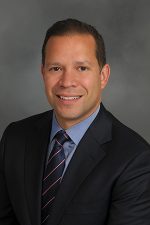
Vice President, Gastroenterology Services
Associate Professor of Medicine Zucker School of Medicine
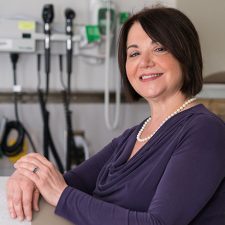
Lorraine Drapek is a nurse practitioner in the Department of Radiation Oncology and a member of the Cancer Center’s Sexual Health Clinic team.
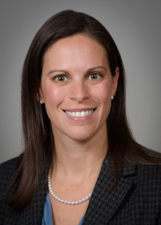
Danielle DePeralta, MD, FACS is double board-certified in surgery and surgical oncology, with dual fellowship training in complex surgical oncology and hepato-pancreato-biliary surgery. She specializes in surgical treatment of diseases of the liver, pancreas, and gastrointestinal tract.
Named a Castle Connolly Top Doctor in 2021 and 2022, Dr. DePeralta is a leader in her field and is an active member of the Society of Surgical Oncology, American College of Surgeons and International Hepatopancreatobiliary Association. She is the Northwell Physician Champion for the Canopy Cancer Collective, a multi-center team that focuses on improving care for patients with pancreatic cancer. She is also heavily involved in clinical trials and innovations related to cancer care, including regional therapies that target cancer that has spread but is still localized to the liver or peritoneal cavity. She was instrumental in bringing pressurized intraperitoneal aerosolized chemotherapy (PIPAC)-a treatment that can help those with few options-to New York. Long Island Jewish Medical Center is now one of only three sites in the nation to offer such therapy.
Treating some of the most aggressive cancers, Dr. DePeralta knows she’s seeing patients at their most vulnerable moments. While focusing on giving them their lives back, she often forms close relationships with her patients. “I try to treat all of my patients the way that I hope someone would care for my mother, my husband, my son,” she says.
Connecting with patients meaningfully is important to Dr. DePeralta, who has a special interest in the human side of medicine. She studied philosophy in college alongside molecular biology and biochemistry. She also completed a medical ethics fellowship during her surgical residency training at Massachusetts General Hospital/Harvard Medical School. Her training has taken her around the world to Uganda, Panama and India, which has fueled her interest in global health and quality health care for all.
Her compassion is also shared by her team, from the care navigators and office staff to the nurses and residents. “We’re very lucky to be so well-supported with a great team that cares a lot about our patients,” Dr. DePeralta says.
Having a team like this serves to strengthen the bonds with her patients, who she learns from each day. “They teach me that you have to keep trying-keep pushing and it’s my job to keep supporting them.It’s extremely rewarding to treat someone who was very sick, who you see a year down the road is cancer-free and living a normal life.”
Board certifications
Surgery – American Board of Surgery
Surgical Oncology – Am Board of Surgery / Complex Gen Surg Oncology
Academic titles
Assistant Professor, Donald and Barbara Zucker School of Medicine at Hofstra/Northwell
Education
Tufts University School of Medicine
Residencies
Massachusetts General Hospital
Fellowships
Indiana University Hospitals School of Medicine
H Lee Moffitt Cancer Center & Research Inst
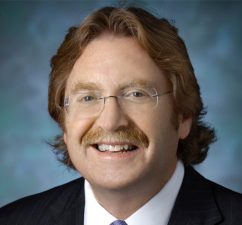
Elliot K. Fishman is a Professor in the Johns Hopkins Medicine Department Radiology and Radiological Science, Department of Oncology and Department of Surgery.
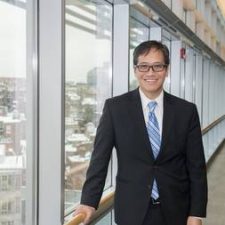
As Director of Gastrointestinal Radiation Oncology and co-Director of the Tucker Gosnell Center for Gastrointestinal Cancers at MGH, I am integrately involved in patient care and clinical research. My research involves clinical trials with advanced radiation and integration with targeted therapies. I collaborate closely with basic scientists to bring new agents to clinical trial. Additionally, I am interested in biomarkers that predict outcomes to radiation or chemoradiation.
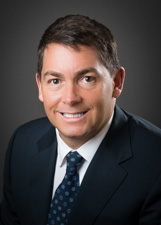
I am a radiologist who specializes in the interpretation of CT scans, MRI’s and sonograms. I enjoy reviewing these radiology studies and then discussing the results with the referring doctors in order to ensure the best care for my patients. With special training in cancer imaging, I have been a member of the hospital’s Thoracic and GI Tumor Boards for many years and work very closely with the other cancer doctors to treat our patients. Lung Cancer Screening is a program that I am intimately involved with and feel very strongly about.
Board certifications
Diagnostic Radiology – American Board of Radiology / Diagnostic Radiology
Administrative titles
Associate Chairman – Radiology of Radiology, Lenox Hill Hospital
Academic titles
Assistant Professor, Donald and Barbara Zucker School of Medicine at Hofstra/Northwell
Education
State University of New York at Buffalo (Medicine)
Residencies
Lenox Hill Hospital
Fellowships
Memorial Sloan-Kettering Cancer Center
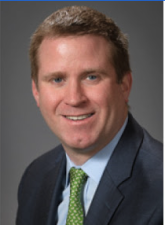
Director, Therapeutic Endoscopy Division of Gastroenterology Lenox Hill Hospital
Assistant Professor of Medicine Zucker School of Medicine
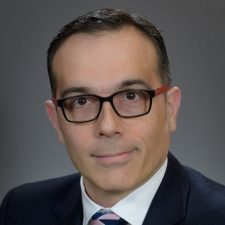
Chief, Division of Surgical Oncology Phelps Hospital
Professor of Surgery Lenox Hill Hospital Zucker School of Medicine
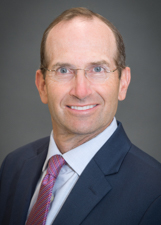
Elliot Newman, MD is the chief of surgical oncology at Lenox Hill Hospital, with a clinical expertise in gastrointestinal cancer care, especially pancreatic and hepatobiliary cancers. He’s been named a Castle Connolly Top Doctor since 2002.
Dr. Newman always loved interacting with people, and as the son of an organic chemist, he loved science too. “The two loves come together nicely in medicine,” he says. His interest in surgery began when he attended medical school at New York University School of Medicine, and he continued on at NYU for his general surgery residency. During his residency, he spent time at Memorial Sloan-Kettering Cancer Center doing a research fellowship. It was during this period that Dr. Newman developed a strong interest in cancer care. This led to a clinical fellowship in surgical oncology, also completed at Memorial Sloan-Kettering. “My mentors taught me to think about the biology of the disease. How is a tumor going to behave? Is this operation right for this person?” he says. “That stayed with me forever.”
With cancer behaving differently from one person to another, Dr. Newman emphasizes the importance of individualizing every patient’s care plan. While he specializes in minimally invasive approaches, including laparoscopic and robotic surgeries, he never assumes this is always the right procedure for everyone and he considers all approaches on the table to determine the appropriate course of care.
In fact, his whole team is involved in creating a patient’s care plan, meeting for a weekly tumor board to discuss and assess all the angles of each case together. And as a Northwell hospital, Lenox Hill offers a full breadth of services, meaning Dr. Newman also has access to other clinical teams as well, including gastroenterology, cardiology, pulmonology and more. This multidisciplinary approach is vital for his patients. “We can take care of the entire patient here,” he says. “Not just the cancer.”
It’s this genuine care and concern that doesn’t go unnoticed by his patients, and he’s constantly humbled by their gratitude. “There’s nothing like getting a note from a patient, family member or friend who really appreciates the fact that you’ve lengthened the life of a loved one or helped them get to a next milestone,” Dr. Newman says. “Whenever my time is up, I know I’ve helped or tried to help many patients, and that makes it all worthwhile.”
His passion for helping others also extends beyond medicine. For many years he and his family have supported organizations that assist underprivileged children, creating better opportunities for present and future generations.
Board certifications
Surgery – American Board of Surgery
Administrative titles
Chief of Division – Surgical Oncology, Department of Surgery, Lenox Hill Hospital
Academic titles
Professor, Donald and Barbara Zucker School of Medicine at Hofstra/Northwell
Education
New York University School of Medicine
Residencies
New York University School of Medicine
Fellowships
Memorial Sloan-Kettering Cancer Center
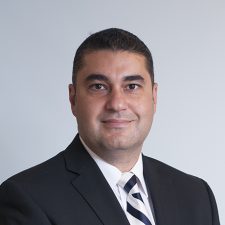
Motaz Qadan, MD, PhD, is a hepatobiliary and pancreatic surgical oncologist at the MGH. He is a high volume pancreas and liver specialized surgeon with excellent outcomes. Patient information videos about his common operations are included below:
Dr. Qadan’s leadership positions include:
Dr. Qadan received his undergraduate and medical degrees from the University of Edinburgh Medical School, which is among the top medical schools in Western Europe. He completed surgical residency at Stanford University, where he served as administrative chief resident. Following this, he completed a fellowship in complex general surgical oncology at the Memorial Sloan Kettering Cancer Center in New York where he served as the educational coordinator.
Dr. Qadan is also a Fellow of the American College of Surgeons (FACS) and a Member of the Royal College of Surgeons of Edinburgh (MRCSEd). He is a surgical member of the multidisciplinary cancer team at the MGH.
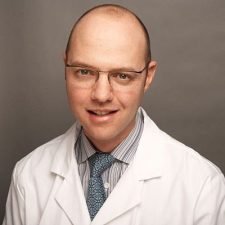
David Robbins, M.D., M.Sc., is board certified in Gastroenterology. He received his B.A. in History from Columbia College and earned his M.D. with honors (AOA) and distinction in research from the Mount Sinai School of Medicine in Manhattan. Dr. Robbins completed his residency in Internal Medicine at the Hospital of the University of Pennsylvania and his fellowship in Gastroenterology at the Mount Sinai Hospital in New York. He also completed an advanced fellowship in Endoscopic Ultrasound at the Medical University of South Carolina in Charleston and was a clinical research fellow in anti-cancer drug development at the National Institutes of Health.
Dr. Robbins is an Attending Physician at Lenox Hill Hospital, where he also serves as the Associate Chief of Endoscopy and is the Program Director for the GI fellowship training program. He is an Assistant Professor of Medicine at the New York University School of Medicine and is on the faculty of the American Society for Gastrointestinal Endoscopy (FASGE). He has been invited to speak internationally and has published and lectured widely. In 2010 Dr. Robbins was honored for distinguished service as the ASGE Ambassador to Cairo, Egypt.
In his free time David enjoys biking, tennis, playing his alto sax and is an unabashed foodie.
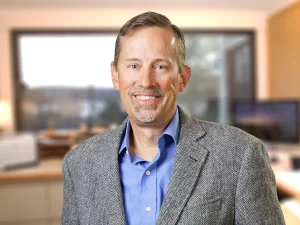
Dr. Tuveson is the director of the Cold Spring Harbor Laboratory Cancer Center in Cold Spring Harbor, New York, where he is also the Roy J. Zuckerberg professor of cancer research. Additionally, he is the chief scientist for the Lustgarten Foundation in Woodbury, New York, the largest pancreatic cancer research philanthropy. Dr. Tuveson is a medical staff affiliate at Memorial Sloan Kettering Cancer Center in New York, and also works closely with the Cancer Institute at Northwell Health on Long Island. Dr. Tuveson serves on the Board of Scientific Advisors of the National Cancer Institute. He is a world-renowned physician-scientist whose basic and translational research focuses on increasing our understanding of the biology of pancreatic cancer and on identifying and testing in preclinical and clinical settings new approaches for diagnosing and treating the disease.
An AACR member since 2003, Dr. Tuveson is a scientific editor of the AACR journal Cancer Discovery. Among his other contributions to the AACR, he previously served as vice chair for the AACR Annual Meeting Program Committee (2018-2019); chair of the Pezcoller Foundation-AACR International Award for Cancer Research Committee (2019); chair of the Plenary Session for the Special Conference, “Pancreatic Cancer: Advances in Science and Clinical Care” (2016); cochair of the Special Conference, “Pancreatic Cancer: Innovations in Research and Treatment” (2014); cochair of the Program Committee for the AACR International Conference on Frontiers in Cancer Prevention Research (2008); and cochair of the Mentored Grants and Research Fellowships Committee (2008). He has also served as a member on multiple AACR committees, including the Pancreatic Cancer Action Network-AACR Innovative Grants Scientific Review Committee (2008-2010); the Program Committee (2008) and Scientific Review Committee (2007) for the AACR International Conference on Molecular Diagnostics in Cancer Therapeutic Development; and the Annual Meeting Education Committee (2006 and 2011). In addition, Dr. Tuveson has been a member of the Scientific Advisory Committee for Stand Up To Cancer since 2012.
Dr. Tuveson was elected to the 2020 class of Fellows of the AACR Academy. He has been recognized with a host of other honors and awards throughout his career, including the Hamdan Award for Medical Research, Excellence – Pancreatic Diseases (2016), the Jan Waldenstrom Medal from the Swedish Society of Oncology (2014), the Ruth C. Brusky Award for Excellence in Clinical Research on Pancreatic Cancer, PancreasFest (2010), the Norbert and Suzanne Schnog Lectureship for Yale University (2005), the Frank Brooks Memorial Lectureship for the American Pancreatic Association (2004), the Rita Allen Foundation Scholar Award (2003), the AACR-PanCAN Career Development Award in pancreatic cancer research (2003), and the Forbeck Scholar Award from the William Guy Forbeck Research Foundation (2000). He is also an elected member of the American Society for Clinical Investigation (2016) and was a recipient of the Physician-Scientist Early Career Award from the Howard Hughes Medical Institute (1999).
Dr. Tuveson received his bachelor’s degree in chemistry from the Massachusetts Institute of Technology in 1987 and his doctoral and medical degrees from the Johns Hopkins School of Medicine in 1994. He completed his residency in internal medicine at the Brigham and Women’s Hospital in 1997, and completed a fellowship in hematology and oncology at the Dana-Farber Cancer Institute/Harvard Cancer Center in 2000. He was a postdoctoral fellow at MIT from 1997 to 2002.
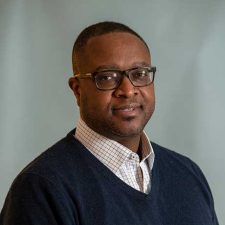
Christopher D. Horner Endowed Chair in Pancreatic Cancer
Director, Pancreatic Cancer Research The Tucker Gosnell Center for Gastrointestinal Cancers
Co-Director, MGH Cancer Center Grand Rounds Program
Massachusetts General Hospital Cancer Center
Associate Professor of Medicine Harvard Medical School